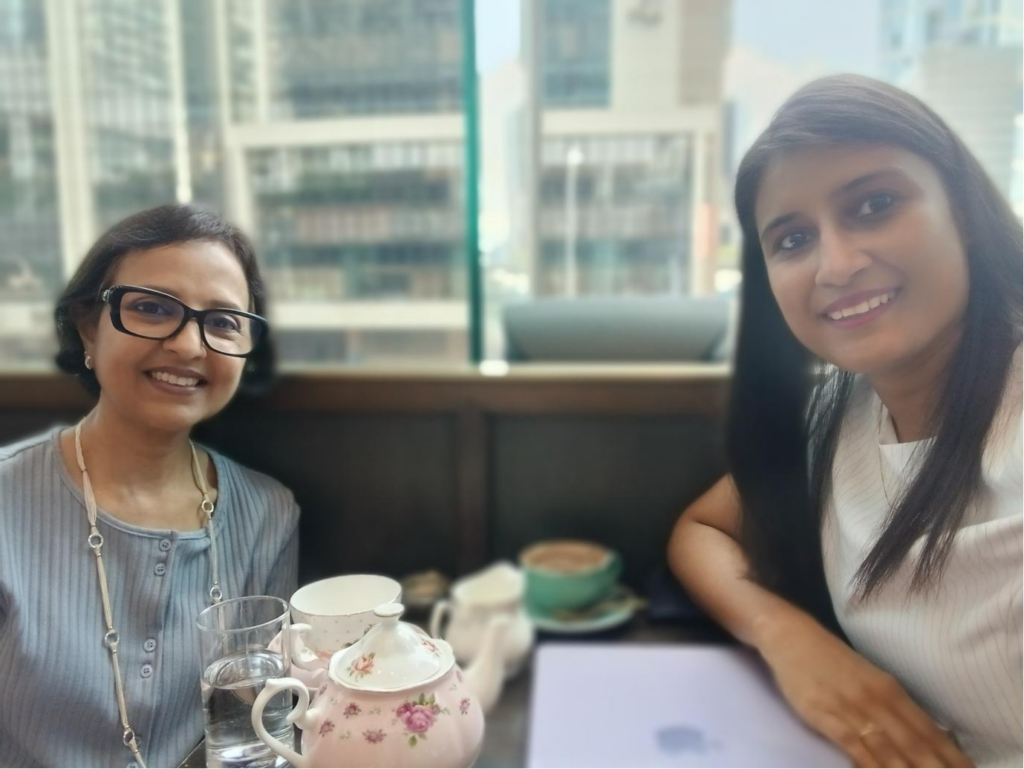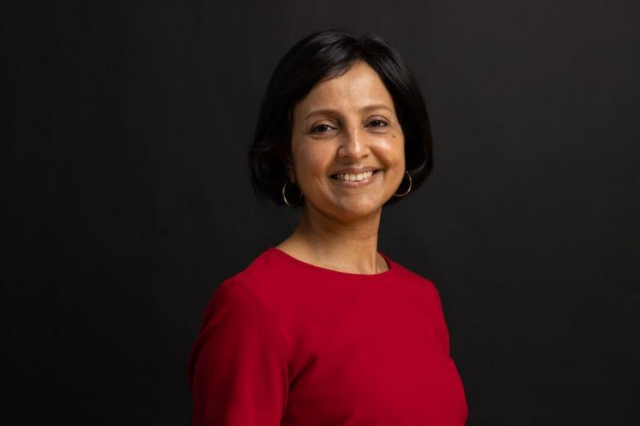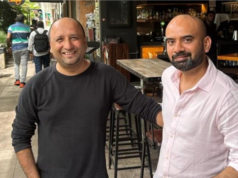Niru Vishwanath on Her Role at the EOC, Her Journey in Advocating Racial Equality and Cultural Harmony in Hong Kong, and the Importance of Diwali and Cross-Cultural Festivitie
In an exclusive interview with A-Desiflava, Niru Vishwanath, a seasoned manager at the Ethnic Minorities Unit of the Equal Opportunities Commission (EOC), shares insights into her professional journey, the challenges and triumphs she has encountered, and her experiences celebrating Diwali in the multicultural hub of Hong Kong. She highlights how simple acts, such as sharing sweets during festivals at the workplace, can foster acceptance, inclusivity, and diversity.
Q1: Let’s start from the beginning. When did you come to Hong Kong, and what brought you here?
I first arrived in Hong Kong in 1996 for a brief period. I stayed for two years before leaving for a decade, only to return permanently. My husband’s career necessitated frequent relocations, and with our young twins, I travelled across the globe with him. When our children reached primary school age, we made a conscious decision to settle down in Hong Kong.
Q2: What is your perspective on the ‘trailing spouse syndrome’? How can one maintain career continuity while accompanying a spouse abroad? What advice would you give to ethnic minorities seeking meaningful employment in Hong Kong?
It’s certainly challenging (laughs). Adding motherhood to the mix only amplifies the difficulties. There is often a compromise involved, but it’s important to find alternative choices. In many marriages, one spouse may sacrifice career continuity, but it’s crucial to stay networked, keep searching, and remain open to opportunities that provide personal fulfillment.
For Hong Kong in particular, there is currently a shortage of skilled labour in the market while real talent in the form of the trailing spouse is being under-utilized. I see more organizations than earlier having return-to-work programs for women who took career breaks for various reasons including maternity. There are however practical challenges to both partners working with no support for the kids. Companies are thinking around this and offering remote work etc, but we still have a long way to go!

Niru Vishwanath in conversation with Ritu Churiwala. Speaking from experience about cultural inclusivity in a global city while sipping Assam tea at an upbeat café in Pacific Place, Admiralty.
Q3: You’ve been with the EOC for 13 years. How would you explain the role of the EOC to someone new to Hong Kong?

The Equal Opportunities Commission or the EOC is a statutory body tasked with implementing the four anti-discrimination ordinances that we have in Hong Kong. Its primary role is handling discrimination complaints from the public. People facing discrimination or harassment due to their sex, disability, family status or race can file complaints with us. The EOC also carries out research, training, public education, policy advocacy and offers legal assistance in certain cases. Regarding complaints, we assist the parties involved to settle the complaints through conciliation. The EOC is not an adjudicating body so we cannot judge or levy punishment. However, we bring the conflicting parties together for a mutually agreed resolution. It’s a free service.
The EOC is often referred to as an Anti-Discrimination Body or the equality watchdog.
Q4: Which communities fall under the ‘ethnic minority’ category in Hong Kong, and what common struggles do they face?
92% of the population here is ethnic Chinese. The remaining 8% are diverse. Of this 8% almost half is that of domestic helpers from mainly the Philippines and Indonesia. Technically, all those who are not ethnic Chinese in Hong Kong should be ethnic minority. However, the perception of the term “ethnic minority” over time has come to represent mostly the non-Caucasian population and predominantly those from South Asia, some Southeast Asian countries and Africa. The common struggle across this diverse group is that of the language barrier. They may also face stereotyping and bias.
Q5: This year marks the 15th anniversary of the Race Discrimination Ordinance—a significant milestone in making Hong Kong a cultural melting pot. Can you elaborate on its significance and how it impacts the lives of ordinary citizens, particularly those from ethnic minority groups?
The Race Discrimination Ordinance was the last of the four ordinances that came into effect after a gap of 13 years. It took a great deal of time crafting it. The Ordinance was formulated with the aim of protecting people being discriminated against on the grounds of their race. Apart from providing redress to those who have faced race discrimination or harassment, the law acts as a strong deterrent. The Race Discrimination Ordinance covers four types of discrimination – direct discrimination, indirect discrimination, racial harassment and racial vilification. If you are treated unfavourably because of your race, you can complain to the EOC up to 1 year from the time of the incident. The complaint has to be in writing and complete confidentiality is maintained. You may first call the EOC hotline (2511 8211) or submit an online form to seek advice on your particular case and next steps.
The importance of coming forward to report discrimination is that it gives an organisation the opportunity to review its policy and build in better practices so that no one else will have to go through discrimination again.
Q6: What public support systems are available in Hong Kong for those seeking help after experiencing discrimination?
EOC is your body when there is any discrimination and harassment under the four ordinances mentioned earlier. You can go to the labour department for employment related disputes while the police handle matters of a criminal nature. For more information it is a good idea to approach neighbourhood NGOs or the Ethnic Minority Support Centres located across Hong Kong. They can provide good support and point you in the right direction.
Q7: As a breast cancer survivor, what advice would you offer to those struggling with mental well-being, whether due to illness, job challenges, or cultural adjustment?
I am no expert in stress management, nor can I claim to have mastered mental well-being. I can only share what worked for me personally. During my treatment, I drew upon the body’s inherent power to heal. Maintaining a positive mental environment is crucial. I meditated regularly, which was immensely helpful. Additionally, I found it beneficial to discuss the illness as if it were already behind me. We are creatures of habit, and how we train our minds plays a significant role in our overall well-being.

When interviews turn to candid conversations and formal pictures are replaced by selfies!
Q8: We’ve noticed an increasing number of schools and workplaces in Hong Kong celebrating Diwali. Have you observed this change over the years? How do you celebrate Diwali at the EOC?
It has definitely changed over the years. Earlier Diwali celebrations were limited to the Indian business community. Locals would associate it with the Indian New Year. In the last few years, there has also been a demographic shift. Eid, Diwali, Songkran etc. have all gained popularity. At the EOC, we put out information in our staff news about upcoming festivals. For Diwali, I would bring in sweets to distribute. So by now, most of my colleagues are aware of Diwali.
Q9: Do festivals play a role in fostering cultural acceptance and inclusivity?
We are creatures of habit, and how we train our minds plays a significant role in our overall wellbeing.
There are multiple things that lead to acceptance of diversity. For example flexible holidays are a great way for an organization to build inclusion. In an effort to become more inclusive, we have been suggesting to companies and even the government to send out greetings on important festivals to acknowledge the cultural sentiments of the various communities that live in Hong Kong.
Q10: The EOC’s efforts to bridge gaps between communities and promote equality in opportunity are commendable, especially with 158 schools across Hong Kong now part of the Racially Friendly Campus Recognition Scheme. What is the next goal?
We are aiming at expanding the scope and the number of schools that come under the Racially Friendly Campus Scheme. In the 1st year we had over 60 schools sign up, with the number going up two-and-a-half times in the second round and the Education Bureau joining as a supporting organization of the scheme. We will be announcing the 2024/25 scheme soon and have introduced 3 awards for further incentivising racially friendly and inclusive practices in school campuses. The aim is to collect and promote best practices and hopefully bring all the schools in Hong Kong under this scheme very soon!





